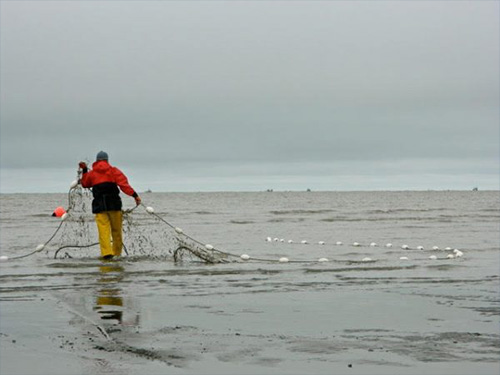
Report identifies ways to rejuvenate Alaska’s commercial fishing fleetBy PAULA DOBBYN
December 07, 2017
The report, called “Turning the Tide”, is based on a global review of access to commercial fisheries. It is the work of a research team at the University of Alaska Fairbanks College of Fisheries and Ocean Sciences, Alaska Sea Grant and Alaska Marine Conservation Council.
The report details the ongoing loss of fishing permits and quota from Alaska’s coastal communities and the rising age of quota and permit holders. It notes that Alaska’s rural fishing communities have shed nearly 2,500 locally held commercial fishing permits since 1975 when Alaska began limiting entry. That’s a loss of over 30 percent of permits originally held by local residents. Prior to limited entry, anyone could fish commercially by getting a gear license and paying a nominal fee to the state. With limited entry, people who want to start fishing must purchase rights, or be gifted or inherit them, from private individuals. Of the permits remaining in rural Alaska today, an increasingly older population holds them, a trend known as the “graying of the fleet.” In 1975, fishermen age 40 and under held about half of all rural local permits. By 2016, that figure had nearly been cut in half. The typical fisherman working today is over 50 years old, a decade older than a generation ago. Both trends threaten the viability of commercial fishing as an economic and cultural mainstay in Alaska, the study concludes. The report lists the following recommendations:
The full report is available at fishermen.alaska.edu. The report’s release comes one day before the Alaska Young Fishermen’s Summit convenes in Anchorage at the Dena’ina Center. Organized and hosted by Alaska Sea Grant, the summit offers leadership-building and networking opportunities in the Alaska commercial fishing industry through three days of intensive training. Industry leaders will provide insights on fishing business management, regulatory processes and the role of Alaska seafood in the global marketplace. This year the summit coincides with the North Pacific Fishery Management Council meeting in Anchorage.
Representations of fact and opinions in comments posted are solely those of the individual posters and do not represent the opinions of Sitnews.
|
||||
